Media | Articles
7 worthy project bikes we’d pick from this 100-motorcycle auction
Look, I need another project like I need a hole in my head, but you and I both know that no self-respecting gearhead actually stops looking for new wheeled conveyances to place in their garage. Even worse (better?) is when said enthusiast is surrounded by enabler friends who send them Marketplace ads, Craigslist listings, and auction links for all the things they could probably scrape enough cash together to purchase (but definitely shouldn’t).
A link to this 100-bike treasure trove of an auction hit my inbox last night, and I have since locked my credit card in a safe to which I don’t know the combination. Thus, my only outlet is to share exactly what I would, in theory, buy from this O’Brien Auctioneers sale happening in Appleton, Wisconsin, this weekend.
1970 Harley Davidson Rapido
The Aermacchi era was a strange time for Harley Davidson, and most HD fanatics reflect upon it with mixed feelings. The Italian brand had hopes to bump market share for the then-limping American manufacturer by re-branding small, affordable motorcycles and stuffing them into showrooms. One such offering was the air-cooled, 125cc Rapido. It was nearly the complete antithesis of everything Harley Davidson had built before, and it failed to earn the reputation that Japanese manufacturers were gaining during the late ’60s and early ’70s. Heck, even Hodaka was a step ahead of Harley here.
That said, the Rapido is a neat little motorcycle and this one appears to be a solid start to a project or basic, street-legal pit bike. We’d love to ride this conversation piece to the first cars and coffee of the season.
1972 Suzuki GT750 “Water Buffalo”
In an era of lightweight, two-stroke machines, Kawasaki built a water-cooled, 500-pound beast. It only makes sense that its given name of Le Mans is rarely used when referring to the Water Buffalo. A two-stroke, three-cylinder engine sits in a chassis tuned for a totally different experience than that of Honda’s sporty CB750. The GT750 is softer in just about every way, but that’s not necessarily a bad thing if you like to err on the side of ease.
Marketplace
Buy and sell classics with confidence
Strong low-end torque and a comfortable seat make for a machine that can be ridden at speed all day, and the WaterBuffalo quickly found fans in what we would call the sport-touring market today. If that sounds like your thing, you can find it here.
1972 Kawasaki H2
The Water Buffalo above was not the only two-stroke triple in the 1972 market. For those seeking humbling power and speed outside the Suzuki fold, the H2 was waiting in Kawasaki showrooms. Nicknamed the Widowmaker, the H2 packed a serious punch that could easily upset a rider who was unfamiliar with a two-stroke powerband. If you’re only looking at the spec sheet, a 452-pound curb weight paired with a 74-hp rating might not sound that gnarly, but look at the dyno chart and see how that power arrives and you’ll understand the lore.
H2s have always been treasured and this one looks nice and complete—though it needs some work. The listing says that, despite excellent compression, the engine is currently not running. If you think you can harness the Widowmaker, this might be the one for you.
1985 Yamaha RZ350
Its status as the first motorcycle equipped with catalytic converters is an odd footnote in the history of this speedblock-shod Yamaha. Instead, think of the Z350 as the quintessential two-stroke middleweight superbike. The parallel-twin 347cc engine produces calm, reliable power in factory trim, but the aftermarket offers just about anything a rider could want to turn one into a fire-breathing beast. The engine outlived the RZ series, in fact, when Yamaha transplanted a derivative into the Banshee ATV. Good, original components are hard to find, so restoring this particular bike to factory-fresh is likely a fool’s errand. Our advice? Ride it and enjoy a modified, period-correct machine.
1973 Kawasaki Z1
Ask car people what the first muscle car was and the debate will be unending—much like the discussion over the first superbike. The Z1 is always part of the early-superbike conversation, though, and for good reason. Packing an air-cooled, 900cc inline-four that produced 84 horsepower, this is the bike that most credit with popularizing the formula now known as UJM (universal Japanese motorcycle). As early sport bikes have lifted in value in recent history, the Z1 has emerged a leader along with early CB750s. Finding good ones is tough and unearthing a good one available for public sale is even harder. This one looks to be a solid restoration candidate.
1975 Norton 850 Commando
The Commando evolved a good bit over its decade-long production. This 1975 is on the tail-end of that range and as such enjoys a couple nice benefits; for instance, the Euro-style left-side rear brake was left behind in favor of the U.S.A.’s left-foot shift, right-side brake arrangement. The Commando also got a disc rear brake and electric starter, though the latter is known to be fussy in the cold. The red-and-blue pinstripes on this white machine identify it as an Interstate model. Known to be the most oil-tight and reliable of the Commandos, if a Norton is something you want in your garage, this could be the one—assuming you don’t mind some cleanup work.
1967 Honda CB450 Black Bomber
Look past the crusty chopper look and there is a motorcycle worth talking about here. The Black Bomber was Honda’s first volume-produced DOHC model and only came in one color: black. The engine design was advanced enough that some European organizations excluded it from production race classes, since the DOHC was closer to an advanced, factory-effort engine than a privateer build. The mill was known to be reliable, provided you changed the oil regularly, so there is a decent chance the lump at the heart of this chopper has some life left in it. Build a period-correct chopper or use the chassis as a base for a vintage racer; we don’t think either would be a bad choice.
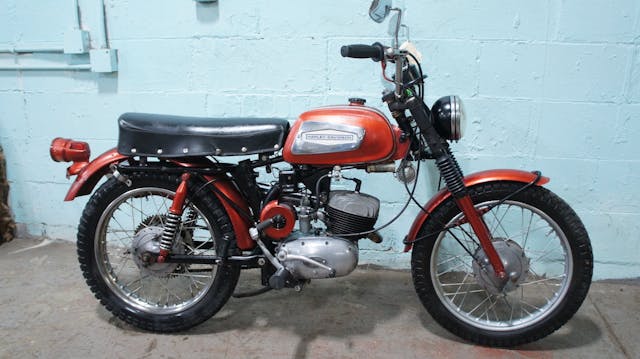

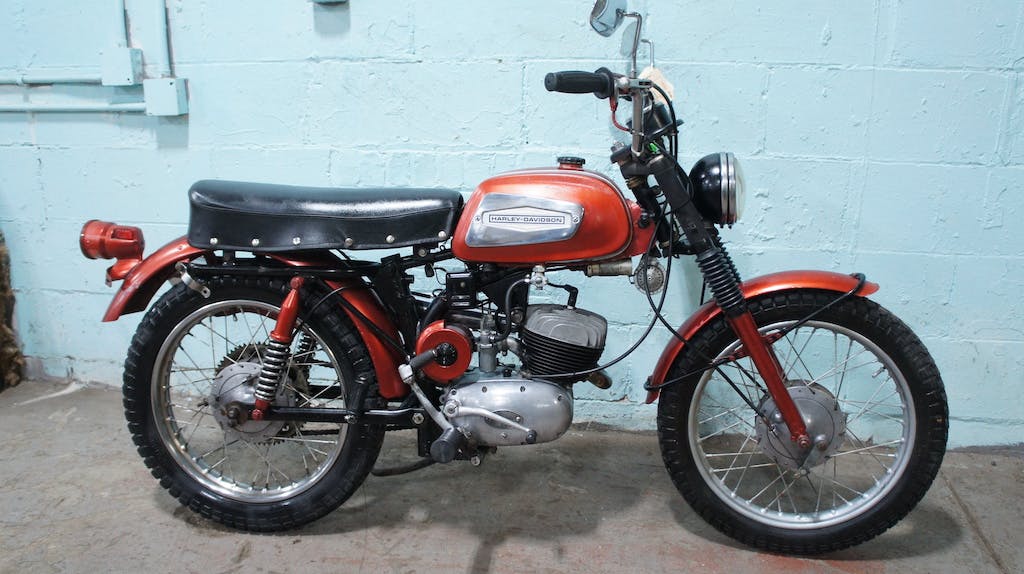
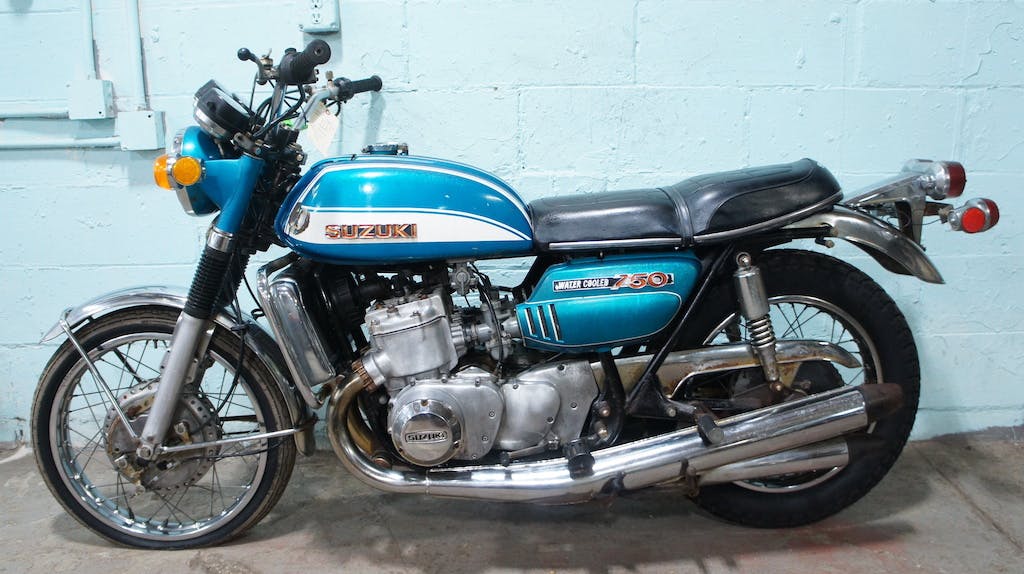
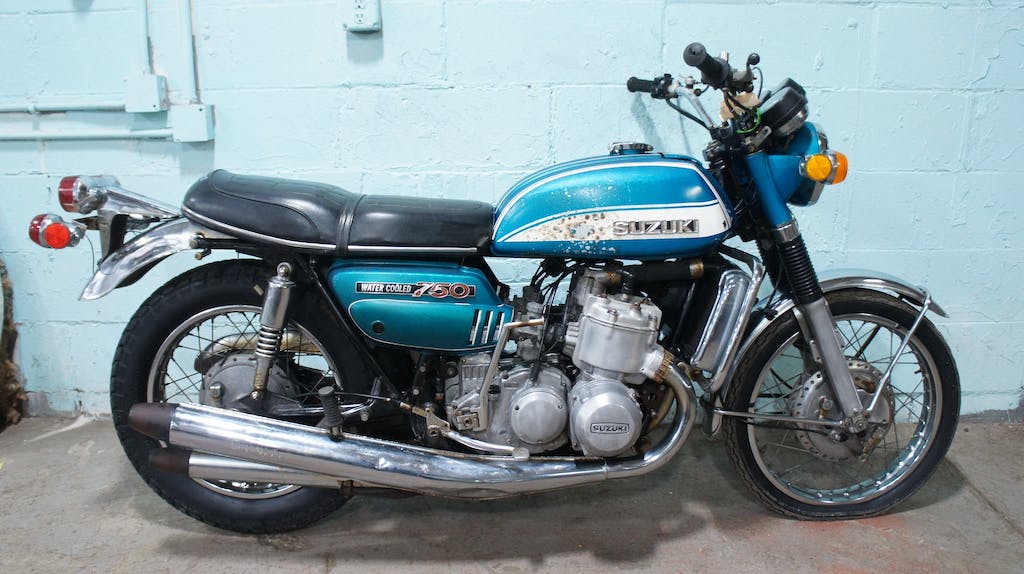
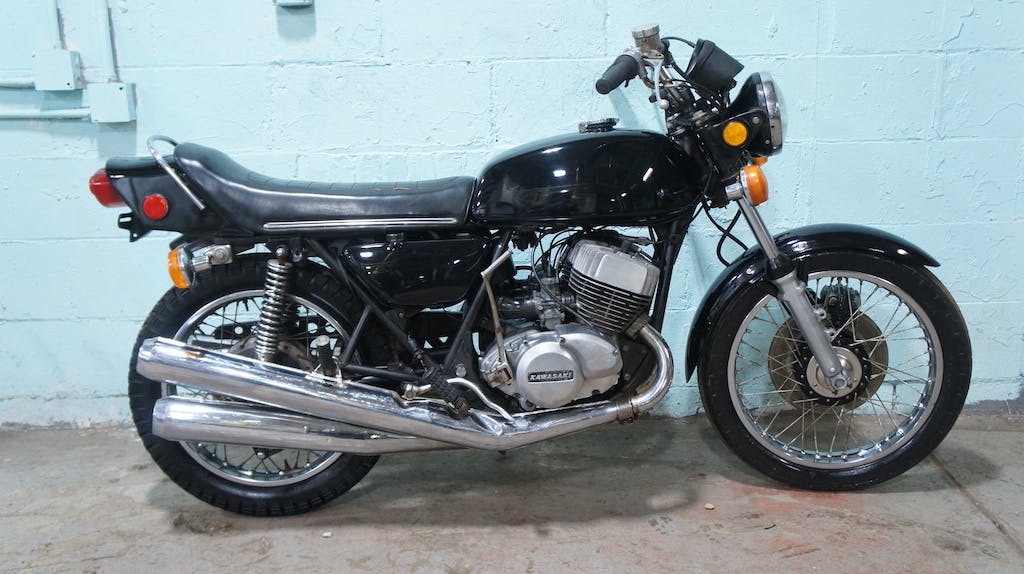
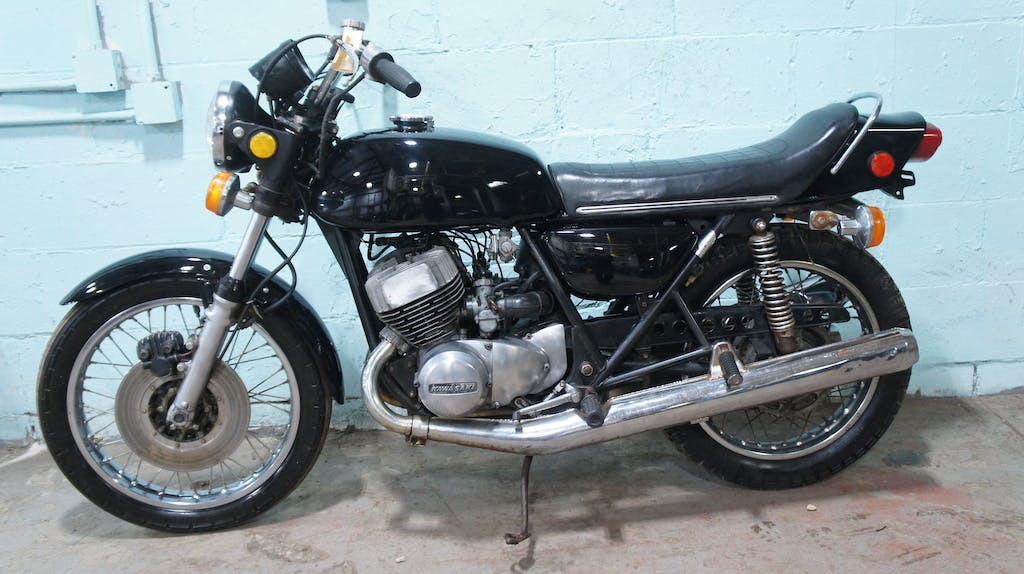
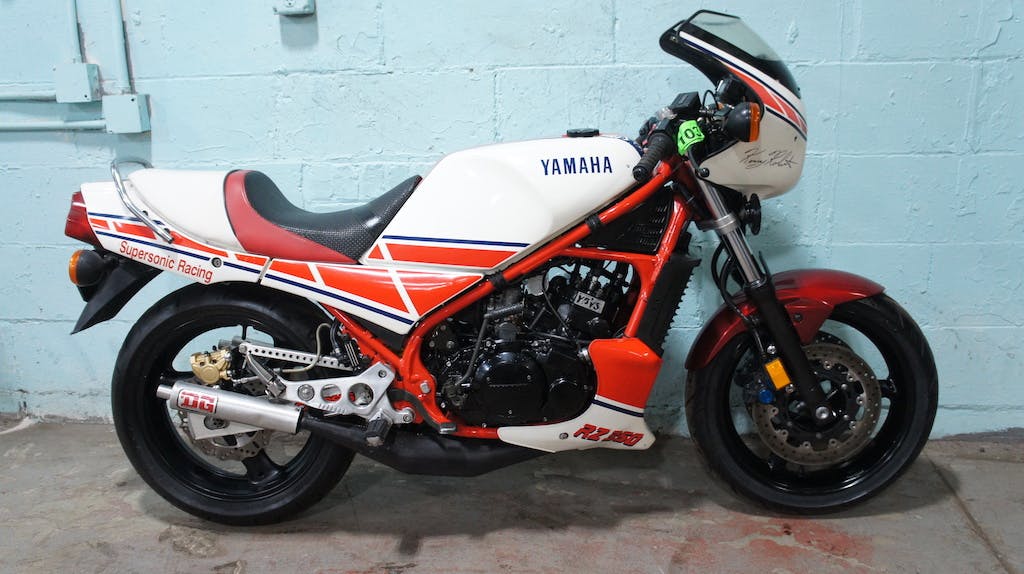
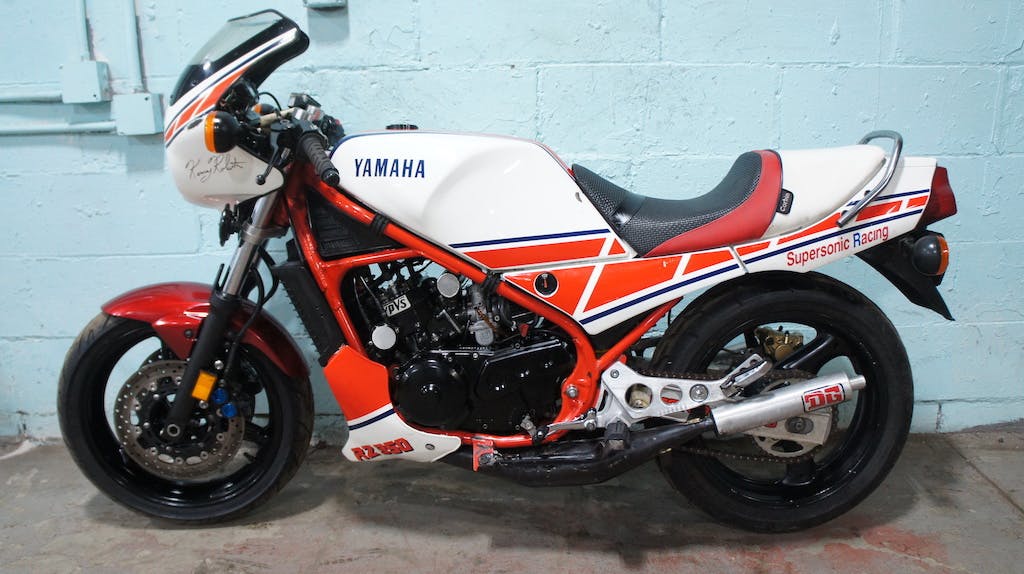
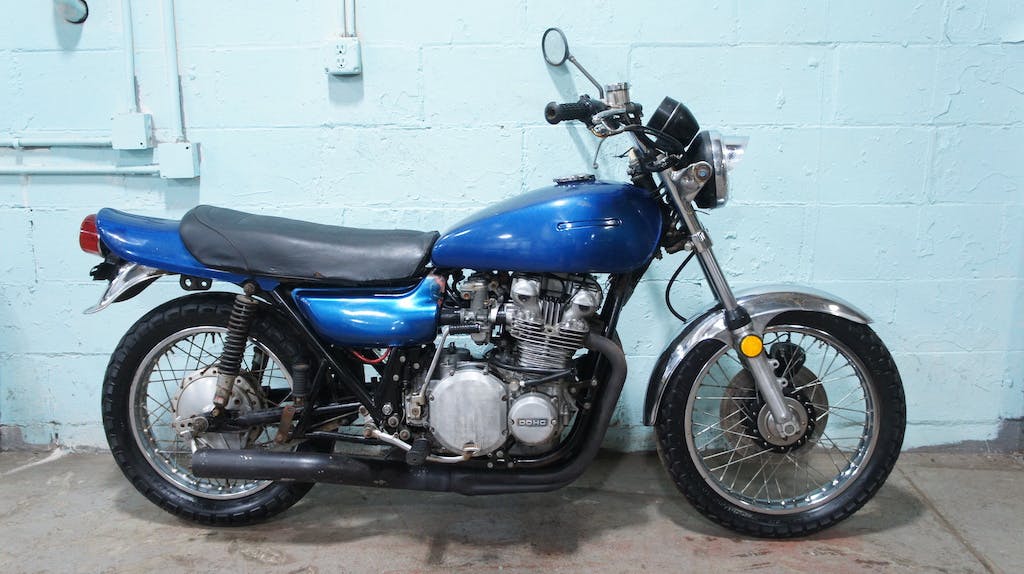
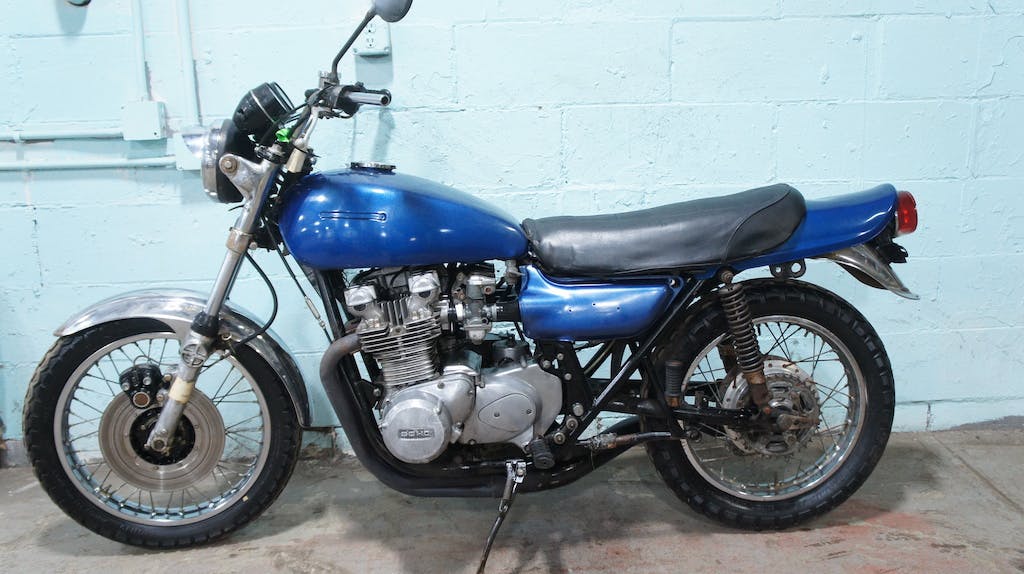

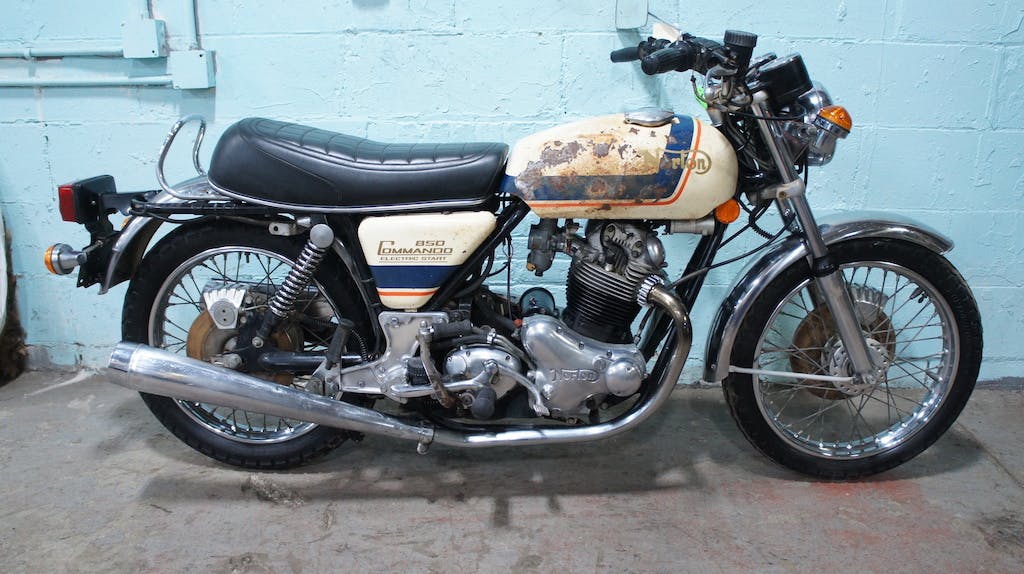

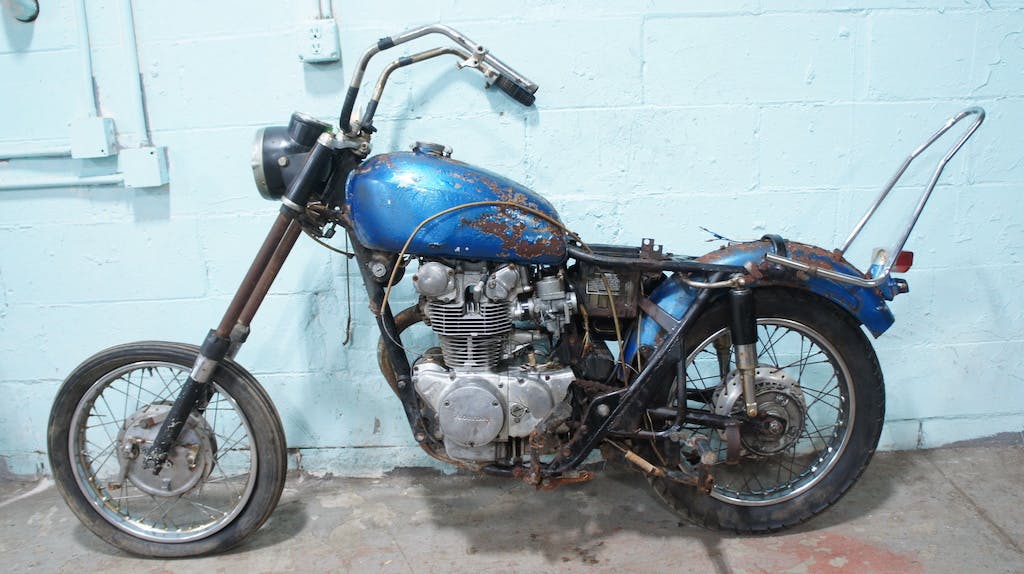







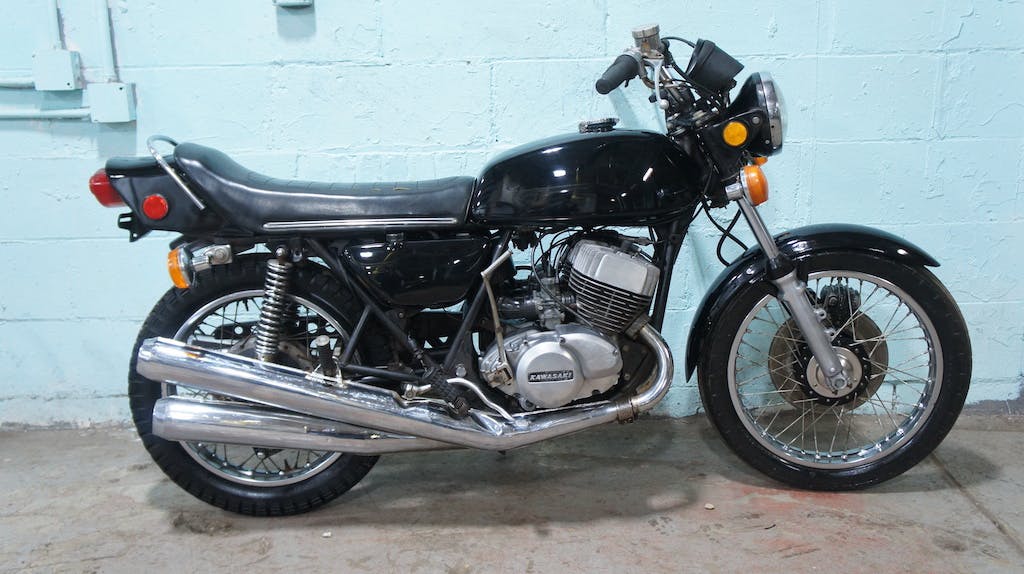







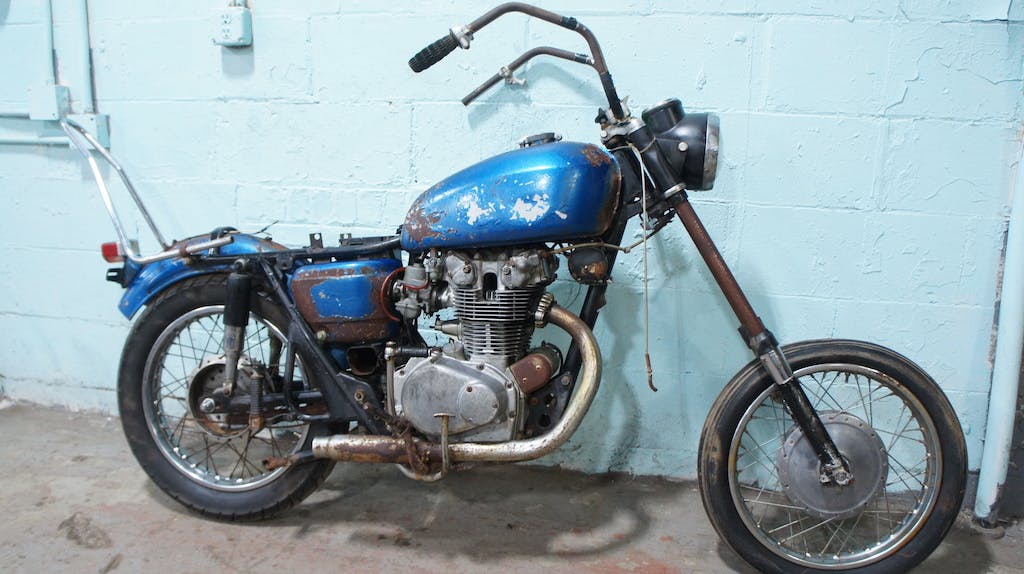
Would like your help.